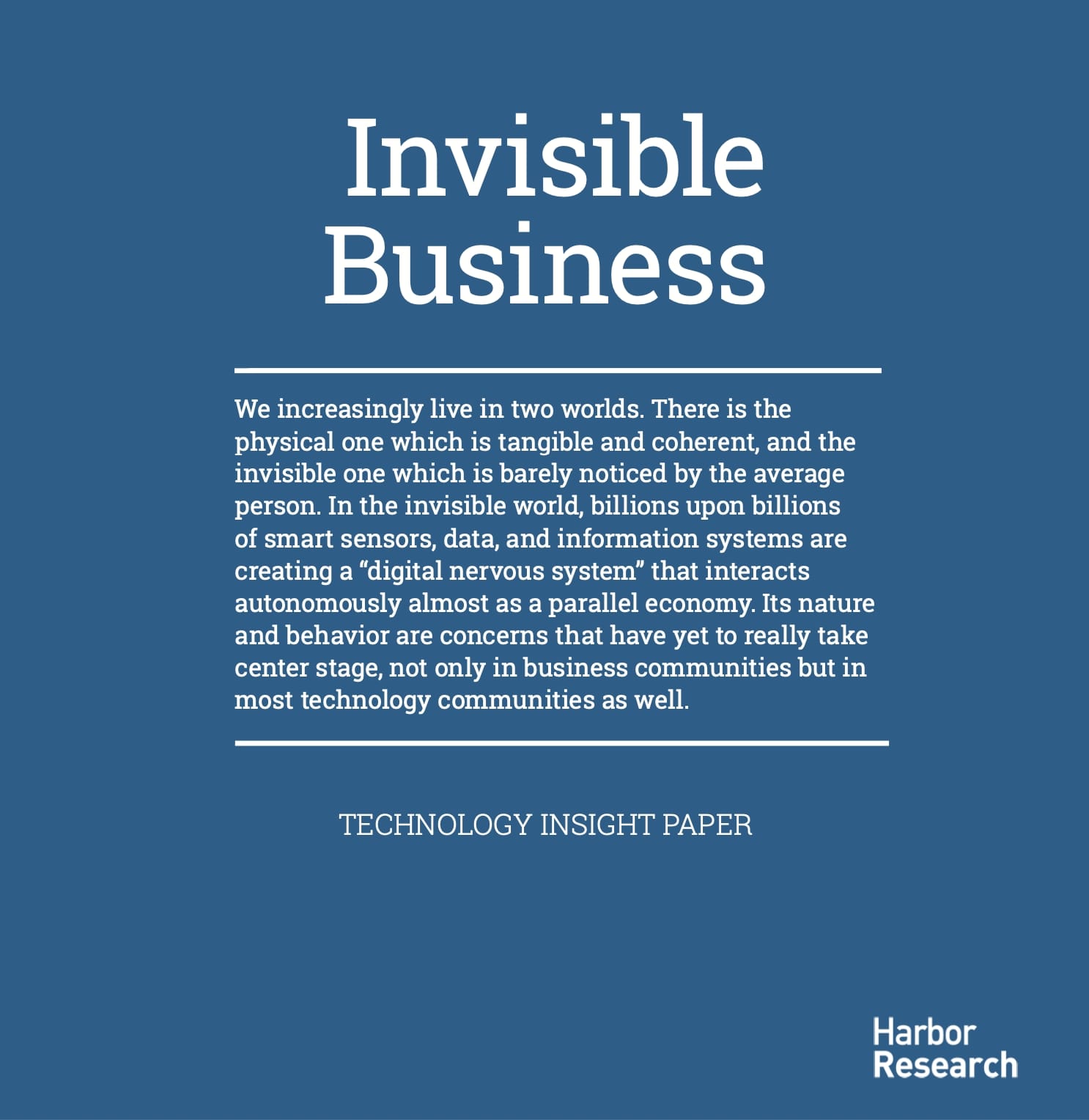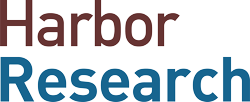Until now, the “data economy” has consisted of surveilling, collecting, hoarding and monetizing—privacy and ethics be damned. But half the data that leaders need to make decisions comes from outside their own businesses, which means that not sharing is no longer an option. Personal privacy demands that people be in charge of their own data, with companies extracting what they need “in flight” without storing information on consumer behavior indefinitely. Learning to walk this fine line will be one of the great challenges of the next decade.
PROVIDING SERVICES WITHOUT TRACKING PEOPLE
How should we be thinking about the treatment of data as a monetized resource that doesn’t necessarily belong to the company or companies that are monetizing it? That was the question posed by Dr. Steven Shepard when he sat down with nioLabs founder Doug Standley and Harbor Research founder Glen Allmendinger.
It’s obvious today that we need to share data in order to leverage services across ever more complex delivery chains and ecosystems. Unfortunately, our proprietary, IP-obsessed business culture does not yet fully grasp this basic reality. Even the simplest questions—who owns the data and under what conditions external entities are allowed to access it?—often go largely unanswered in a climate that feels more like the wild west than the high-tech 21st century.
Harbor Research strongly believes that we need to automate the fundamental mechanisms and policies that govern identity, privacy and the sharing of personal data. In lieu of this, it will not be possible to have sane, friction-free economies where goods and services move freely without obstruction.
Regarding the rapid spread of “surveillance capitalism,” every honest technologist knows that it’s not necessary to store every bit of data to do analysis or create social context for delivering a service. That can all be done “in flight” as the data flashes from sensor to edge-processor, after which it is allowed to evaporate into the ether.
The heavy-handed extraction and storage of behavioral data by for-profit entities has already gone much further than it should have. As a result, we expect a transition to data transactions that are increasingly done on the user’s terms with consumer-configurable privacy.
REGULATION SHOULD EMPOWER INNOVATION
We are exiting the “trust me with your data” era of digital adoption. The data era has become a runaway train that has to be constrained. We are going to have a much more regulated datasphere, but at the same time we need an enlightened and nuanced understanding of what regulation is intended to do. Regulation of data in the 21st century cannot simply be “the House of No.” That would be a colossal failure.
Good regulation should control excesses while also empowering innovation. That means that the modularity of regulation has to be driven largely by individuals managing their own data from the bottom up, not authorities managing it from the top down.
This essay is supported by our Technology Insight “Invisible Business.”
Fill out the form below to download the Insight for free.






